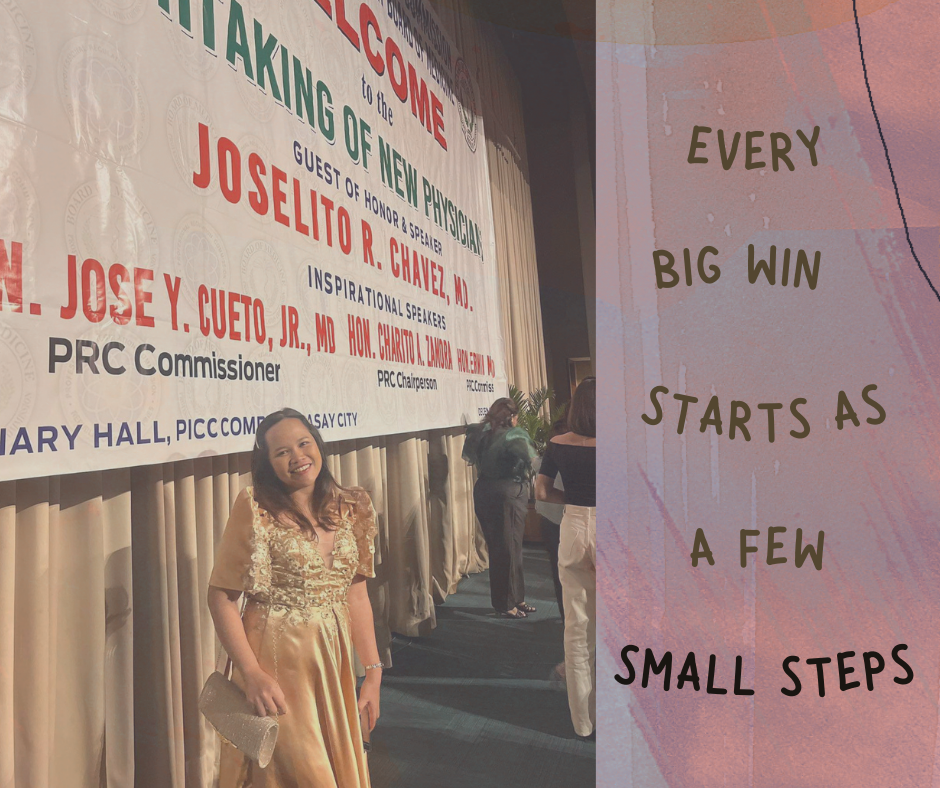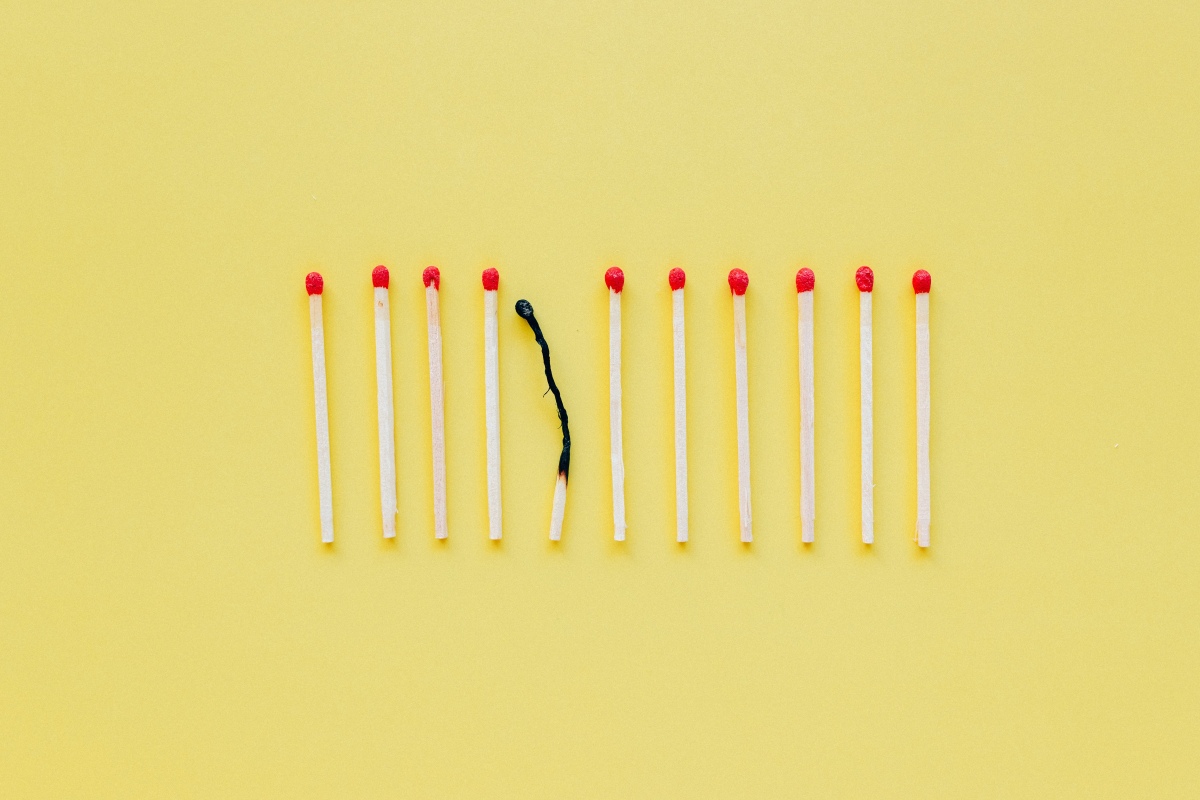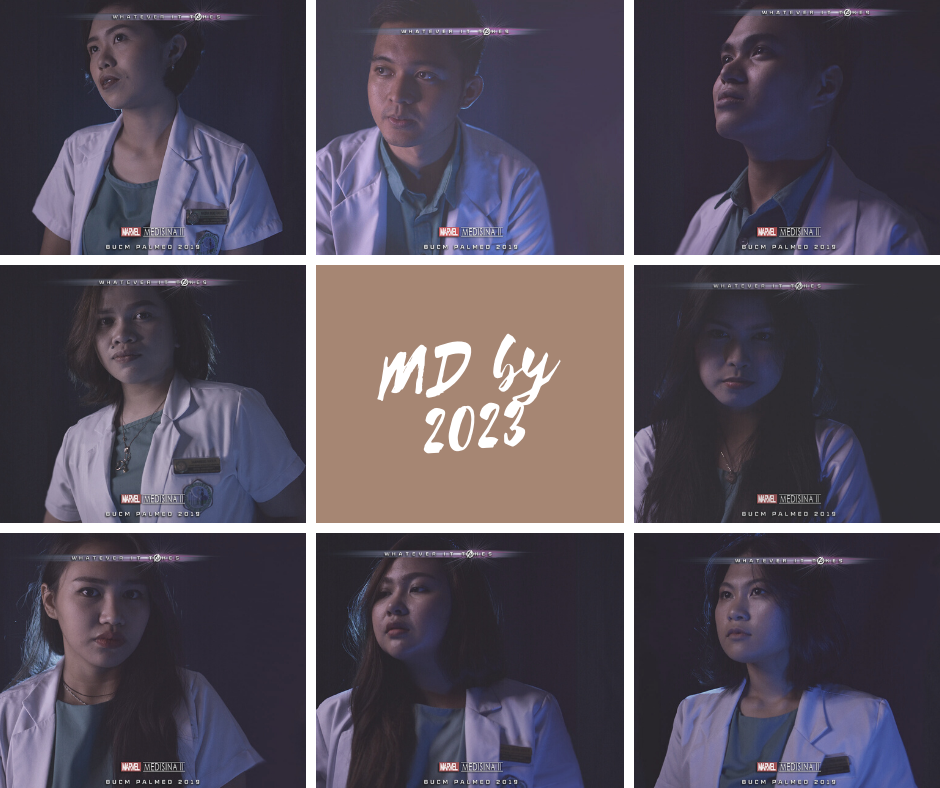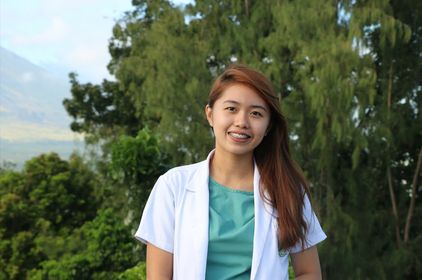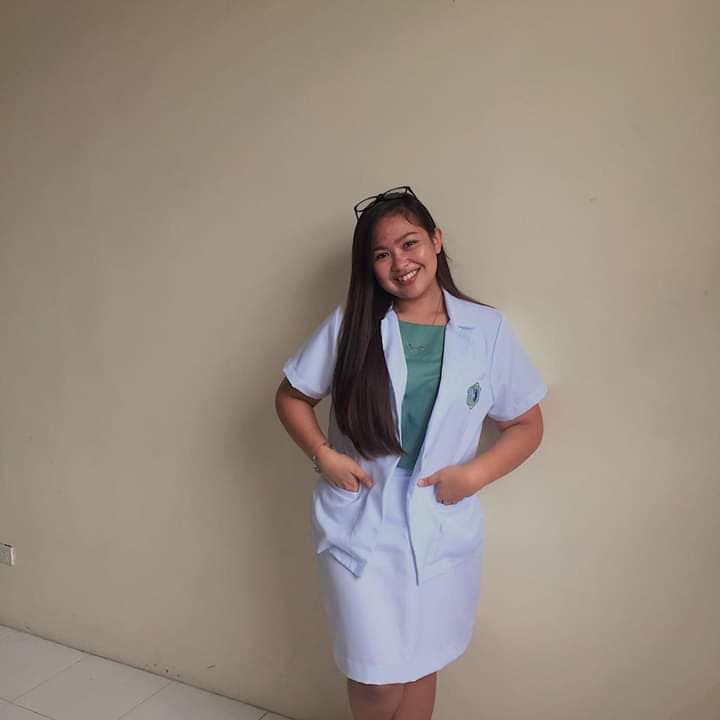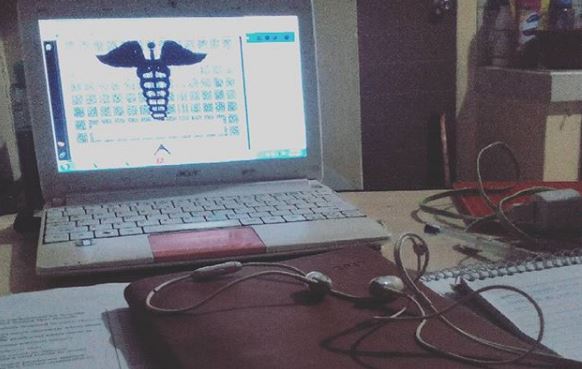I have never considered myself as a genius but I know that whenever I want something, I work hard. I am relentless when it comes to my dreams and passion. I guess that is the innate quality that I do have which helped me pass the board exam. I promised myself that when I become a doctor, I will pay it forward so let me share how I prepared for the October 2023 Physician Licensure Examination.
My preparation started two years prior PLE. It was during clerkship. I know that as an average medical student, I had to work extra hard in order to pass PLE on my first try. My medical school has Problem Based Learnig Style, meaning we digest cases every week, hence we didn’t have the traditional structured format unlike other medical schools. There were so many pressures. Sponsors funded my education so I had to deliver. I was born in poverty and I don’t have parents to lean on. My siblings though, worked hard to help me out. I don’t have a choice. Failure was sadly not an option for me. That was my mindset.
1. During Clerkship: Topnotch Genesis
I enrolled to Topnotch Genesis as a clerk since I felt like I needed organization. I needed organized handouts since our curriculum was PBL (Problem Based Learning). Going back to mother books was time consuming for a clerk, so might as well enroll in a program that has the structure that I needed. It wasn’t easy though to attend the lectures while in face to face clerkship so to be honest I wasn’t able to attend 50% of the lectures. However, it was helpful for me because I was able to go through all the subjects. As early as clerkship, I had an idea of what the PLE will be like. Boy, did I realize how much I don’t know. I had to work harder than I ever did before. Genesis also helped me pass my written revalida so it was a relief because I didn’t have to do oral revalida anymore. Again, thank you Topnotch Genesis.
2. Clerkship and Internship: Study your cases
During junior and senior internship, I knew that this was my chance to understand diseases and know how to treat them. It was hard for a non allied health premed to absorb the initial shock of working in the hospital. Surgery was my first clinical rotation, so just imagine how much skills I was supposed to know already, but sadly had none. Third year was fully online so we didn’t have face to face workshops on doing procedures. I had to improvise and be resourceful, Youtube was my bestfriend. Fake it till you make it as they say. I enjoyed understanding cases, and since I am a toxicity magnet, I got to see amazing cases. Those cases were marked by my brain hence during boards, I can see the flashback of my patients. I remembered the meds we gave, the management, how a patient detoriorated, what meds made them recover. I know that clerkship and internship especially in public hospitals is extra hard, but it actually exposed me to tons of cases which I remembered vividly during the exam. When I have time, I go back to the mother books. This type of learning is very much effective.
3. Internship: Listened to Expert MD lectures on idle time
I decided to enroll to Expert MD during internship so that I could still have structure. I am a big fan of structure guys. Since the duty hours were less, there was more time to study compared to clerkship but it was still a challenge especially when you’re in heavy rotations. What I did was during errands, I listened to lectures. When I was doing laundry, cleaning, or anytime that I was waiting, I would l put my earphones on and play lectures on my specific rotation. As an auditory learner, I enjoyed this. I also liked hitting two birds with one stone. Again, I didn’t get to attend all lectures because I was rotating in a public hospital so I still bring work at home. Sometimes I would really get frustrated because I am too exhausted to study but I just put in my mind that as long as I am doing my best, that is already enough.
4. Review Season: Goodbye social media.
It was now or never. I had to suffer now and enjoy the rewards later or enjoy now then regret later. I chose to suffer haha. I lived like a hermit for three months. I deactivated everything, Facebook, Instagram, Tiktok, and 2 weeks before boards I was using my boyfriend’s phone when I need to log in. I basically threw away my social life. Grind grind grind. When I pass, I’ll have plenty of time for socialization and scrolling but now, is not the time. I went on full blown hyperfocus mode. Eliminating all these distractions saved me loads of time,
5. Listened to my body
Since I was on hyperfocus ultra sympathetic mode, I even found it hard to sleep and rest. I had so much anxiety when I couldn’t finish a handout, so I did all nighters. This unhealthy way of studying backfired to me. I got sick twice, and was even admitted two weeks before boards. I was at my worst physical and mental state. So I decided when I got admitted that being too hard on myself was not working. At that moment, I might not make it to PLE since I was sick. I decided to relax . I slept when I’m tired, I ate when I’m hungry, my boyfriend would drive and we’d have quick nature trips every 4 PM. I didn’t care about not catching up with my review center’s schedule. I just studied what I can with the energy that I had. My brain liked this way of learning, I could understand the concepts clearly and it worked like magic.
6. Have a strong support system
The cerebral part of taking the boards, that I took care of, but for the rest, I credit it to my partner. He was just there for me every step of the way. I feel like crying when I remember how much he has motivated and supported me in all the ways that he can. He did everything for me so that I could focus on studying. He made me coffee every morning, we jogged, he printed all my handouts a night before I need to use them. He took care of the laundry, went with me to file for the boards, took care of me at the hospital, and he didn’t give up on me when I just didn’t want to proceed with the exam anymore. He arranged everything, prepared all my meals for the four days and he would pick me up from the testing center. It was almost three months of his life all focused on achieving our goal. There were times when I was crying every night and having someone who listens and comforts you is such a gift. He is simply the best. I decided to proceed because there’s this person who will never give up on me no matter what. I couldn’t fail him.
7. Have a friend who’s experiencing the same thing as you and be each other’s support system.
I had two close friends that I talk to during the review season. Talking to them made me feel validated. I knew that I’m not alone in the struggles. Sometimes Shana (Yes iname drop kita) and I would meet up and call each other when everything’s just extra scary and confusing. This woman has so much grit (4.5 using Angela Duckworth’s grit scale) that it rubs on me. I am so grateful to have these wonderful friends in my life.
8. Practice Tests
Initially, I tried to adjust my learning style with what the review center has set, but to be honest, Practice tests got me through the review. I was able to reinforce what I was learning. I initially read the handouts and watched lectures simultaneously. Afterwards, I had a second read, then did practice tests. In some subjects I was not able to do a second read but it’s okay. I just kept on doing what I can. Medicine has a very broad knowledge base so you really have to prioritize. My midterms score was my basis for knowing my strengths and weaknesses. I focused on my weaknesses since you can’t get a score of less than 50% in any subject. Your high scores in other subjects won’t matter if you get just one failing score in any of the twelve subjects. So just keep on answering practice tests.
9. Flashcards
Since Topnotch had flashcards which was based on previous PLE, this became my lifesaver especially one week before boards. I registered on Quizlet Premium and kept on answering flashcards, every moment that I could squeeze it in. It was very effective for me, especially on the subjects that I couldn’t focus on anymore. Again, thank you Topnotch!
10. Let it go.
This is a very important component of my strategy during PLE season. Just like in any aspect of our lives, we have to learn to let go of the outcome. As long as you absolutely know that you did your best, the outcome doesn’t matter anymore. I remember that whenever I would hit roadblocks in medical school, when I can’t understand the material I’m reading and there’s an upcoming exam, I run by this mantra, “My love of learning is way greater than my fear of failing.” And if ever I fail, it’s okay, because at the end of the day, what matters is who I have become along the process of studying medicine. Medicine is my art, it’s my craft, and neither success nor failure, could change my excitement whenever I get to understand a concept and treat a patient. When the last subject was done, and I passed the Preventive Medicine answers, I knew that my future was set. I had a sigh of relief, that there was a 50% chance that I will become licensed to heal. I also knew that, it was my absolute best, with the every power that I could have summoned. I was grateful for the opportunity to learn and serve.
